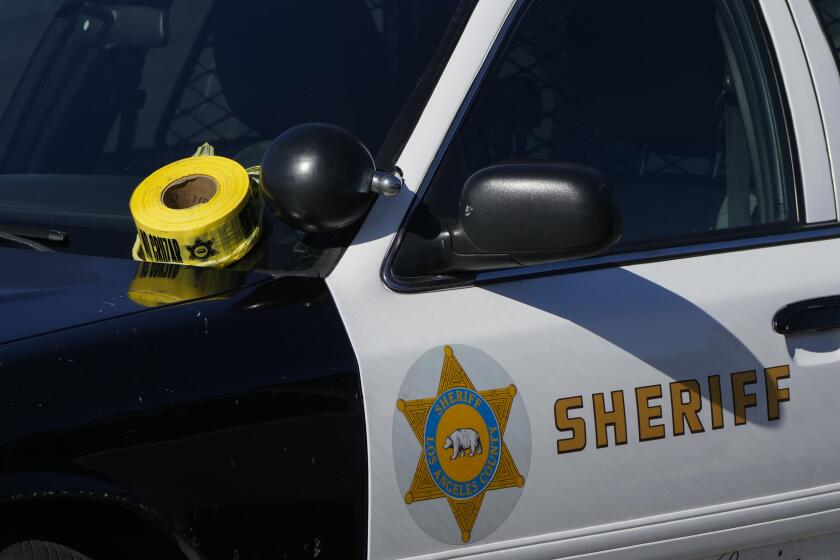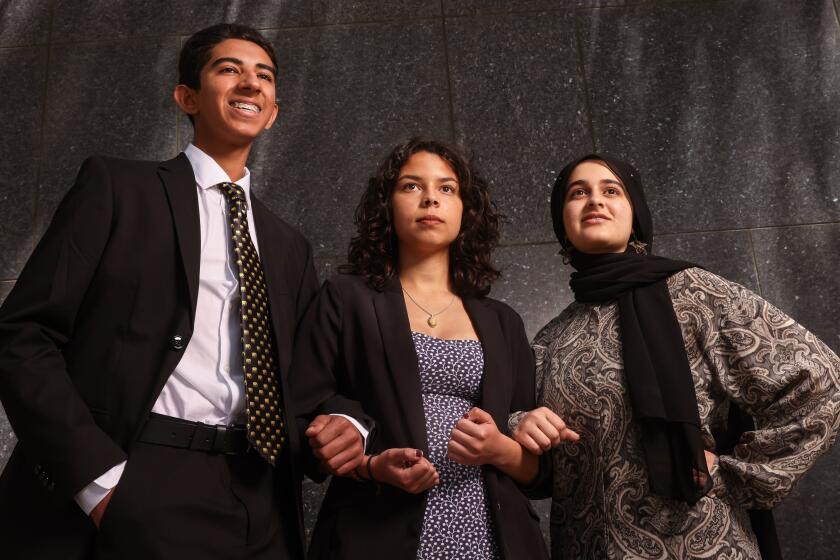State Sues Firm Selling Charity Coupon Books
California Atty. Gen. Dan Lungren on Thursday alleged that a Costa Mesa-based company that bills itself as a fund-raising vehicle for nonprofit organizations instead is operating a Ponzi scheme that is placing millions of dollars in consumer funds at risk.
Lungren’s lawsuit, filed Thursday in Superior Court in Los Angeles against United Grocer’s Clearinghouse, seeks more than $2 million in restitution for customers and distributors and an additional $2 million in fines.
UGC sells books of coupon that groups such as PTAs resell during fund-raisers. The books are redeemable for name-brand cereal and coffee, which the firm then mails from its Costa Mesa warehouse.
Lungren claims that UGC’s business plan is a “variation on a Ponzi scheme” because the company uses money from newly signed distributors--rather than true profits--to pay for the cereal and coffee that it ships from its Costa Mesa warehouse.
UGC officials on Thursday declined to discuss specific allegations in the complaint, but maintained that the company, located in an office park near John Wayne Airport, will continue with its normal operations.
“The allegations in the complaint are just that--allegations,” said Ron Cooper, an attorney representing UGC. “We feel confident that when the attorney general fully understands our operation that we will be vindicated.”
The 1-year-old company, which has more than 250 distributors around the country, has been embraced by scores of schools and nonprofit organizations, including an Irvine group that raised about $15,000 in late 1995.
“I don’t know what to say,” said Elizabeth Thomas, executive director of the Irvine Education Foundation. “When we used them, it worked out fine. But I don’t know what to think now.”
The attorney general’s lawsuit alleges that UGC has been illegally selling the coupon books to distributors, who in turn sell them to PTAs and other organizations at a higher price. Nonprofit groups are allowed to keep a percentage of the total revenue raised during sales.
During a recent interview, UGC President Steven Lee acknowledged that UGC loses money on every box of cereal and can of coffee shipped from its warehouse.
Lee maintained that UGC turns a profit from advertising fliers that other companies pay him to stuff in each shipment of cereal or coffee. UGC, he said, hopes to generate additional profit through the sale of other products with high profit margins.
But Lungren’s complaint alleges that UGC’s business plan has pushed the company into a money-losing position.
The complaint alleges that UGC clears about 40 cents per coupon from distributors, but that the company has to pay up to $7 to buy and mail each box of cereal or can of coffee. Lungren said that UGC has sold more than 6 million coupons and received about $2.5 million from distributors and customers.
If all of UGC’s outstanding coupons were to be redeemed, according to the suit, the company would owe as much as $41 million. Lungren maintains that the company has “virtually no capital reserves” to meet possible consumer demands for product.
The complaint alleges that UGC and Lee violated several state laws, including failure to register with the attorney general’s office and neglecting to provide required disclosure statements to distributors.
Thomas, who was one of the first nonprofit executives to contract with UGC, said that her group sold hundreds of books at $30 each, netting $13 per book. “We got the money that they said we would get,” Thomas said. “But I do know that delivery of the cereal has been slow for several months now.”
Several other groups that have used UGC to raise funds have been complaining for several months about slow deliveries, and UGC executives acknowledged that their distribution facility wasn’t equipped to deal with the crush of new business. Lee said a newly installed system is capable of moving more than 20,000 shipments each week.
More to Read
Start your day right
Sign up for Essential California for news, features and recommendations from the L.A. Times and beyond in your inbox six days a week.
You may occasionally receive promotional content from the Los Angeles Times.






